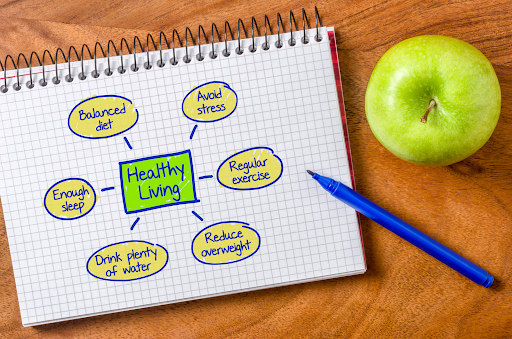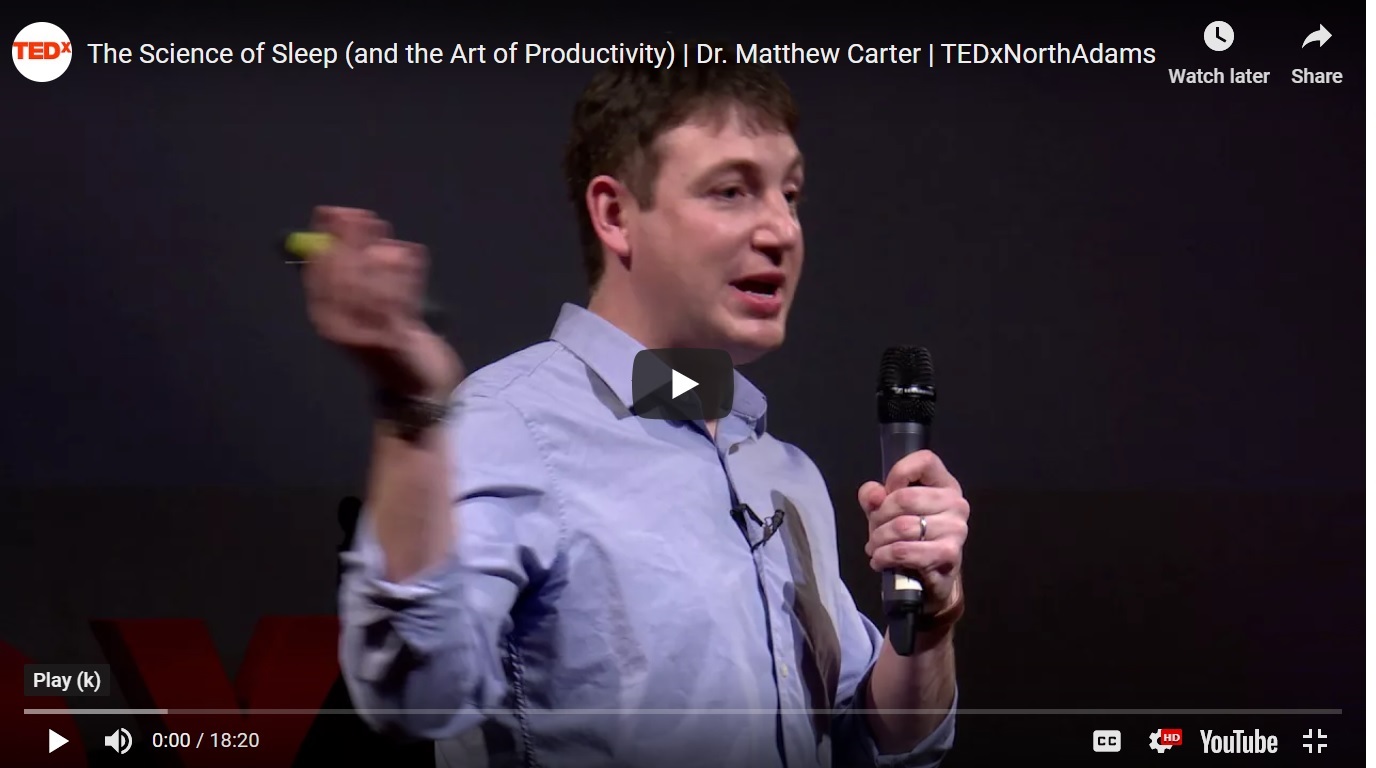You Can’t Beat Biology: But You Can Obtain Productivity and Satisfaction
By Dr. Markel, September 19, 2019
You Can’t Beat Biology: You can ratchet up your productivity and satisfaction by better managing sleep, exercise, nutrition, and stress

How many times have you made comments like these?
- “My mind is racing and I’m not asleep until the wee hours. I feel like I’m running on empty, but I’ll soldier through. Perhaps I’ll catch up on the weekend. Of course, I know that doesn’t work out.”
- “I know I feel better when I exercise, but I don’t have the time.”
- “After skipping lunch, I came home and dove for the comfort foods and wine. I need to eat right and lose some of the weight I gained over the last year, but I’ll start when things are less hectic?” (How has that worked out?)
- “Stress is a constant in my life. Sometimes I’m down and other times I’m so tense, I shut down.”
These comments indicate the ways in which people ignore the biological requirements of a healthy and successful work/life.
I am struggling. Is it just me?
Even bright, motivated and skilled professionals deny the serious impact of pushing their biological envelope. Here are some examples of those I have worked with to recalibrate their work/life battle to meet their biological needs
- Corporate leaders confront changing corporate culture or mergers. They are expected to do more with less and are working in open, distracting locations without designated desks
- Single parents with 2 jobs struggle to make a living while having quality time with children, older parents, and friends.
- Medical residents stretch the day to include study for specialty boards and practicing physicians need to study for recertification tests.
- College and university faculty battle competing demands for research and teaching, while preparing massive promotion packages
Feeling that they must ignore their biological needs for adequate rest, they experience significant erosions of motivation, timeliness, attention, memory, and stamina. They lack enough restful sleep and exercise and overload on carbs and coffee. In desperation, sometimes they overuse or abuse alcohol or drugs. Often, they blame themselves, but culture and work settings set a standard that is impossible to meet, leading to burnout. In addition, those with chronic medical conditions may only sporadically take medications prescribed for ADHD, depression and/or anxiety, diabetes, or allergies. They forget to take time to arrange medical or dental visits.
If it was an easy situation to deal with, you wouldn’t be chastising yourself for not having better-managed health routines. However, you can rely on well-known, research-based strategies.
Strategies for examining your health routines:
Start by gathering information about your daily/weekly routines and looking for behaviors you would like to change, then make a commitment to work on your own behalf. In addition, for most of us, long-term gain requires reaching out to find resources and support from family, friends, and professionals.
Start small and slow. You didn’t find yourself in this situation overnight, so accept the idea that it takes time to re-engineer the way you are meeting your basic biologic needs.
- Track for one week, the times you slept, exercised, ate well and engaged in work, home, school, or other activities.
- Review your schedule and rank the following on a 1-10 scale:
- How often and well am I getting adequate sleep (average 7+ hours a night and for teens 7-10 hours),
- Is there enough personal time or exercise?
- Are digital devices sucking time from sleep, meal planning or stress management?
- If you assign 6 or less to an item, ask, “
- How productive am I at work, home, or school?
- How satisfied am I at the end of the day or do I feel like I’m just spinning my wheels?
- How patient or pleasant am I with others?
- Realistically, can I keep this lifestyle for the next 6 months or year and not be more vulnerable to illnesses or being “low and slow?”
The question is, do you want to complain or gain control? The answer comes from reviewing your values and deciding how you can take better care of your health and wellbeing.
What about youth?
The question is not restricted to adults. Our teens are caught in a similar mess, but they have less control. While their parents are modeling a frenetic, “I can’t get enough sleep to get things done,” their children are pressured by constant thoughts such as, “nothing I do is good enough.” For instance, students feel they must have exceptional grades, and grade point averages. If they take two advanced courses, they wonder if they should be taking three such courses. An athlete? Shouldn’t he or she be the captain? Loaded with heavy schedules and homework, where is the time to prepare for college entrance exams, essays, visits, and applications? Of course, there is no time to relax or read. If they look to parents, too often the response is, “I know, but everyone else does it. Can’t you? Don’t change the course because it may ruin your chances of getting into preferred colleges.”
Ask a teen to block out their schedule and too often it shows they are up until 12 or 1 am doing homework. They get up at 6 or 6:30 am, are busy all day with classes, sports, and other extracurricular activities. They arrive home at 6:30 or 7 pm. Exhausted and irritable, they press on to complete homework and projects.
Teens pay a higher price for ignoring their biological needs since they need more sleep, exercise, nutrition and relaxation to grow and mature. Regardless of their intellectual or physical prowess, they haven’t developed the coping skills needed to deal with the many pressures they face.
The first step for better balance is: Sleep.
In this highly-regarded Ted Talk, a biologist explains how sleep helps in all aspects of your life.
Regardless of age, you cannot beat biology; make sleep the priority. Without adequate sleep, you lack the energy motivation to get things done in with accuracy and completeness.
You can learn to slide into slumber more easily or deal with morning malaise using strategies for sleep aid such as visualization, constructive self-talk, productive, and other step-by-step methods (Markel, G. “Actions Against Distractions: Managing Your Scattered, Disorganized, and Forgetful Mind.”)
If you are fatigued, feeling unproductive, and failing to please yourself or others, stop sacrificing your health. Although many things are not under your control, much of your health and wellness needs are. Use the tools at your disposal to empower you. You will be taking the steps you need to better living and better health.
For additional perspectives, check out this book by Arianna Huffington, The Sleep Revolution. Many additional resources support this idea.
Contact Dr. Geri for continued discussion and ways to support healthy changes in your lifestyle. You can gain greater work/life balance. Are you interested in greater satisfaction and productivity? Contact Geri at Geri@ManagingYourMind.com
Image courtesy of Dreamstime.com – ID 47487168 © Zerbor
